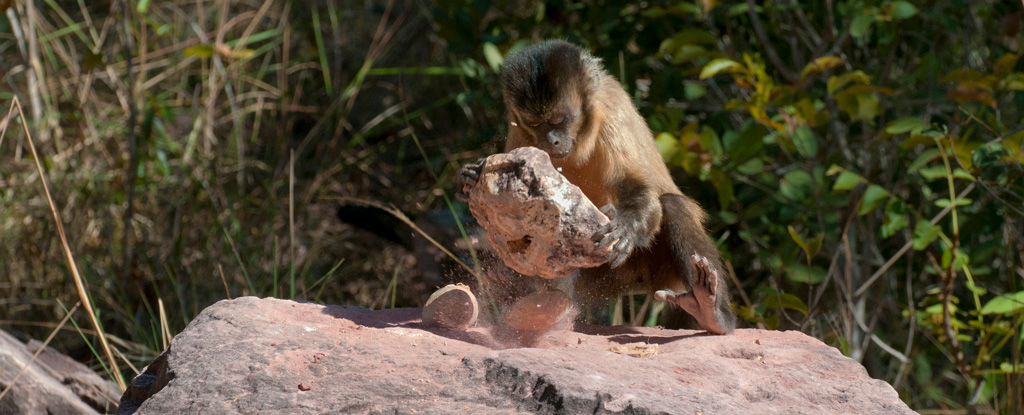Researchers believe that ancient stone tools discovered in Brazil are the work of capuchin monkeys, not early humans, the art and design website Artnet reported, citing an academic article.
"We are confident that the early archeological sites from Brazil may not be human-derived but may belong to capuchin monkeys," wrote archaeologist Agustín M. Agnolín and paleontologist Federico L. Agnolín in an article published in the peer-reviewed science journal The Holocene in November.
The article said that archeologists uncovered what they believe to be ancient stone tools, made from locally occurring quartz and quartzite cobbles during past excavations at Pedra Furada – a collection of over 800 archeological sites in Piauí in northeastern Brazil.
The oldest of the stone tools discovered appear to be up to 50,000 years old, according to the article, which led to some academics theorizing that it provided evidence of early human habitation of the region.
Unexpected findings from 2016, however, posed a challenge to that theory.
The findings showed that capuchin monkeys in northeastern Brazil are capable of making and using a large variety of stone tools.
This raised the possibility, as was first suggested in 2017, that monkeys – not humans – could be responsible for producing the Pedra Furada discoveries.
And according to Agnolín and Agnolín, the researchers behind The Holocene article, there is now a convincing amount of evidence to suggest that the tools weren't human-made.
"Our review of the evidence suggests that the ancient sites in Brazil do not actually belong to the first Americans, but are actually the product of monkey activity," Federico L. Agnolín told Argentina's National Scientific and Technical Research Council (CONICET).
The researchers compared the tools found at Pedra Furada to those that capuchin monkeys make today.
"The result was surprising: There was no difference between the supposed human tools from 50,000 years ago and those produced by monkeys today," Agustín M. Agnolín told CONICET.
The researchers looked to past research and observations of capuchin monkey populations which show that the primates use small stones as hammers and large, flatter rocks as anvils to crack open nuts and seed pods.
"The result is that the rocks used often break, generating rock fragments that are very similar to those produced by humans when carving stone tools," said Agustín M. Agnolín, per CONICET'S news release.
In addition to this, the researchers said in The Holocene article that there wasn't evidence to suggest a trace of human presence, noting the lack of hearths or traces of dietary remains.
"Our study shows that the tools from Pedra Furada and other nearby sites in Brazil were nothing more than the product of capuchin monkeys breaking nuts and rocks some 50,000 years before the present," Federico L. Agnolín told CONICET.
This article was originally published by Business Insider.



Recommended Comments
There are no comments to display.
Join the conversation
You can post now and register later. If you have an account, sign in now to post with your account.
Note: Your post will require moderator approval before it will be visible.